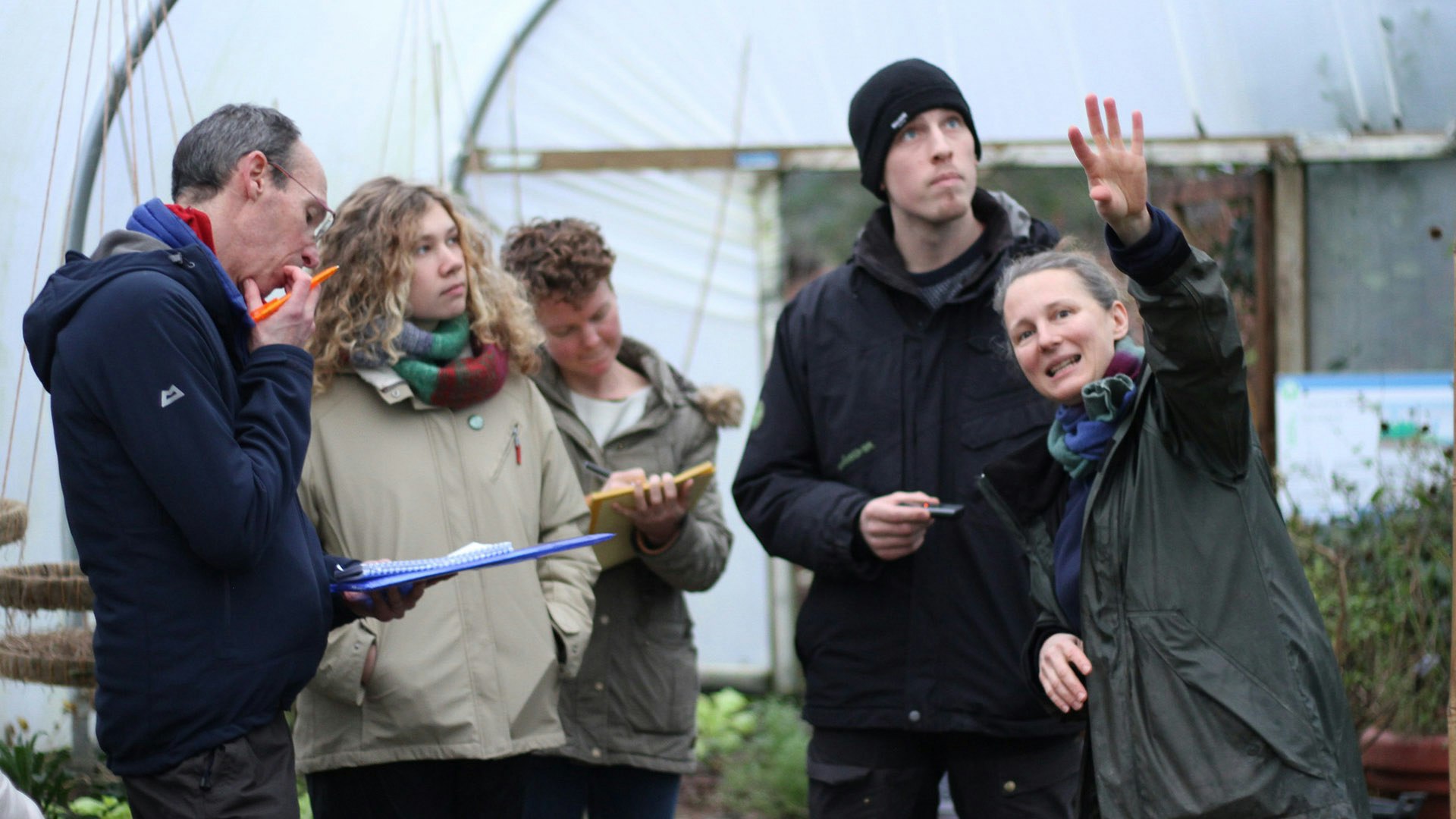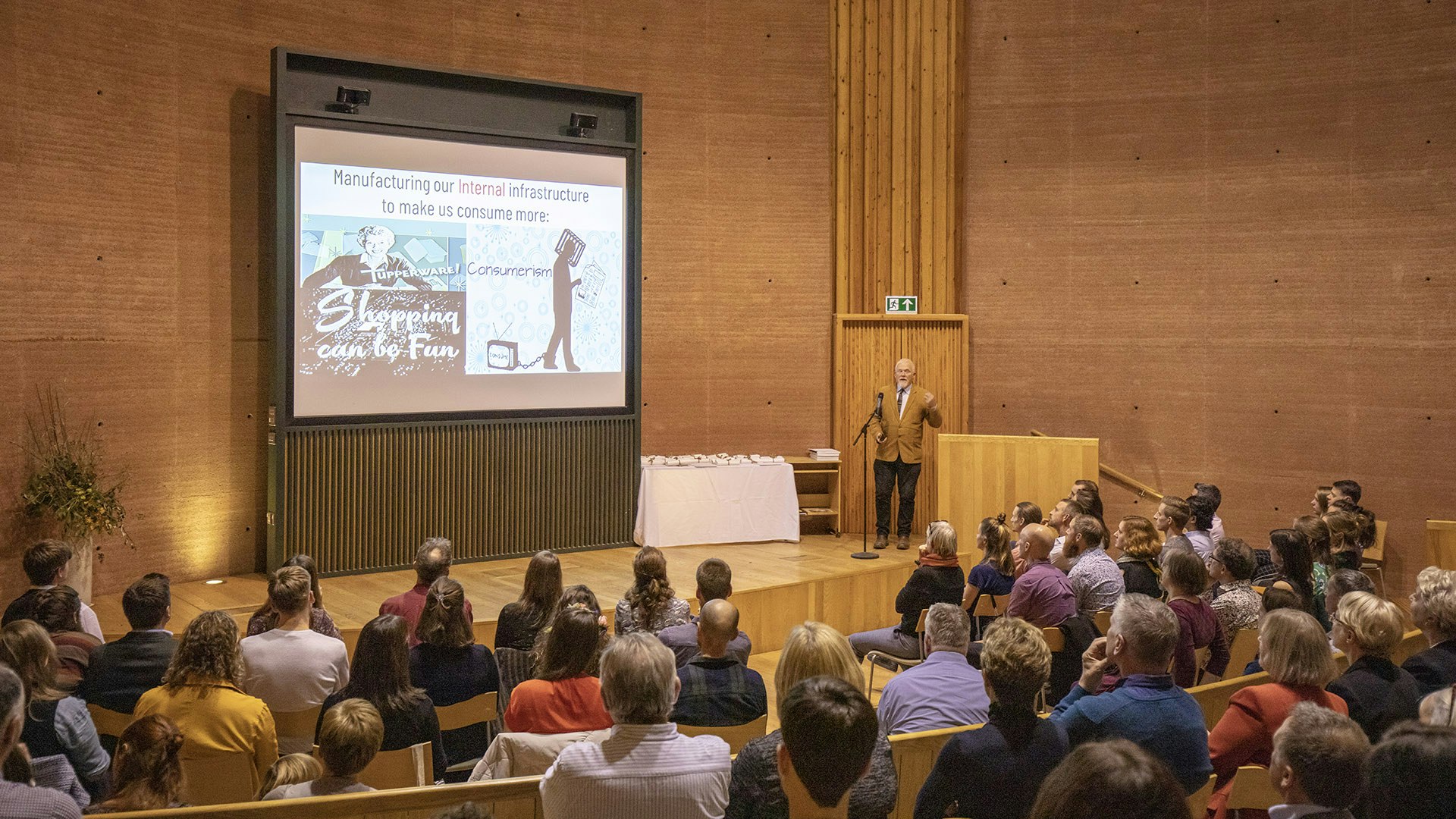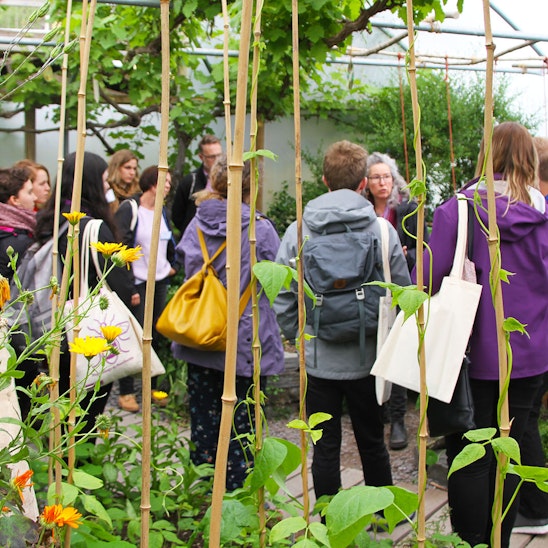Core modules
Introduction to Sustainability and Adaptation
This introductory 15-credit core module starts in September and must be taken at the beginning of your course, no matter which route you take through your studies.
In this module, we will establish the overarching concepts and theoretical grounding in sustainability, resilience and transformational adaptation, contextualise the view of current environmental changes, and explore the interconnectedness of the factors involved with these changes.
There will be an in-depth look at the wider implications of transformational adaptation on social structures and sustainability issues, including land use, trade, resource management, energy provision, governance, health and economic systems through a critical exploration of the primary considerations related to sustainability and environmental change.
The module is followed either by our ‘Sustainability and Adaptation Concepts in Practice’ module or ‘Introduction to Sustainability in Energy Provision and Demand Management’ module starting in November, depending on your programme.
This is a 15 credit module.
Read more about this module for courses awarded by the University of East London:
EV7132 – Introduction to Sustainability and Adaptation (After September 2022)
Read more about this module for courses awarded by Liverpool John Moores University:
7522CATSCI – Introduction to Sustainability and Adaptation - LJMU
What’s it like to study at CAT? Read more about the teaching and learning experience.
This introductory 15-credit core module starts in November and must be taken following the ‘Introduction to Sustainability and Adaptation’ module which starts in September, at the very beginning of your course, no matter which route you take through your studies.
In this module, you will gain an understanding of transformational adaptation planning in practice through a facilitated self-reflective practical team exercise, and form a deep appreciation and holistic understanding of adaptation transformation planning strategies and processes.
You will develop the skills and knowledge needed to contextualise the discipline of transformational adaptation in relation to current environmental change and learn how to make informed decisions, despite the uncertainties that come with a changing climate.
This is a 15 credit module.
Read more about this module for courses awarded by the University of East London:
EV7137 – Sustainability and Adaptation Concepts in Practice (After September 2022)
Read more about this module for courses awarded by Liverpool John Moores University:
7523CATSCI – Sustainability and Adaptation Concepts in Practice - LJMU
What’s it like to study at CAT? Read more about the teaching and learning experience.
In this module, we will draw on a broad range of theoretical and applied topics, relating to behavioural and societal change relevant to transformational adaptations and environmental challenges. The module is taught through a series of lectures, supported by interactive seminars with workshops used to develop group work and analytical skills.
Students will develop their ability to critically examine behaviour change theories, drawing upon behavioural science, social and systems models. You will also evaluate the different roles and motivations of individuals, organisations, communities, governments and society in driving social change for sustainability.
We will study a wide variety of interdisciplinary case studies throughout the module to analyse the practical application of different theoretical approaches to promote sustainable behaviour and transformational adaptation.
This is a 15 credit module.
Read more about this module for courses awarded by Liverpool John Moores University:
7512CATSCI - Theories of Social and System Change - LJMU
What’s it like to study at CAT? Read more about the teaching and learning experience.
This module will examine the role of communication and engagement strategies in relation to public perceptions of risk and supporting behaviour change towards a more sustainable society.
You will also look at the many modern communication strategies available for addressing current environmental challenges while increasing your ability to foster behavioural change towards sustainability and transformational adaptation.
This module will comprise a series of lectures, supported by interactive seminars and workshops. Lectures will draw on a broad variety of theoretical and applied topics, with frequent use of interdisciplinary case studies throughout. Workshop sessions will be used to develop group work and analytical skills.
This module is assessed via a communication of social change intervention (3,000 words equivalence) in which students can adopt any appropriate written or visual communication strategy, such as a video, blog, audio recording or report as part of their submission.
This is a 15 credit module.
Read more about this module for courses awarded by the University of East London:
EV7126 - Communicating Transformational Social Change (after September 2024)
Read more about this module for courses awarded by Liverpool John Moores University
7515CATSCI Communicating Transformational Social Change LJMU
What’s it like to study at CAT? Read more about the teaching and learning experience.
This module introduces students to roles of power, policy, agency and economic structures that produce crises in the context of the environment, and our responses to these crises.
Through a range of topics including political and economic tools for change, environmental justice and inequalities and environment and systems change across global, national, and local scale, you will study the theoretical underpinnings to understanding the importance of political and economic systems to transformational change.
The module takes an interdisciplinary, critical approach to examine how unequal power relations have been constructed, and their environmental and societal consequences. It will consider the societal consequences of unsustainable governance of nature and the built environment.
We will also draw on current and historic social and environmental debates and events to illustrate the application of a range of critical analytical approaches, such as political ecology, discourse, global political economics, and policy studies.
This is a 15 credit module.
Read more about this module for courses awarded by the University of East London:
EV7131 – Introduction to Politics and Economics of Environment (After September 2022)
Read more about this module for courses awarded by Liverpool John Moores University:
7502CATSCI - Introduction to Politics and Economics of the Environment - LJMU
What’s it like to study at CAT? Read more about the teaching and learning experience.
This module, ‘Applied Research Design’, will support students in building knowledge, skills and literacy in research design and methodologies in relation to interventions, projects and applied research. It will also support students in developing a proposal for following either a conventional dissertation route or incorporating a design element within the dissertation.
The module will typically include a study visit on-site at CAT, or equivalent by distance, as scheduled in the academic calendar. It will also deliver relevant research skills for students during their final year of taught modules through attending and watching research seminars.
The Applied Research Design module will include several opportunities for enquiry and problem-based group projects in the lead up to the dissertation module.
All students will be required to carry out a teamwork-based project where they will gain experience in the research methods applied to their discipline and their use in real-world settings, through current live and applied projects.
This is a 15 credit module.
Read more about this module for courses awarded by the University of East London:
EV7125 – Applied Research Design - UEL (After September 2022)
Read more about the dissertation module for courses awarded by Liverpool John Moores University
7521CATSCI - Applied Research Design - LJMU
What’s it like to study at CAT? Read more about the teaching and learning experience.
The dissertation involves designing, investigating, and presenting an extended and independently conceived piece of research on a topic of your choosing within a field of study relevant to your course.
During the module you will demonstrate the ability to explore a relevant research topic in-depth, with appropriate research methodology, displaying creativity and skills in critical analysis. Students will submit a dissertation (18,000 words maximum) at the end of the module. For students interested in focusing on sustainable building or design, part of the dissertation could also involve a design element.
Before beginning the module, students will be required to have gained approval for a Research Proposal (RP) on a subject from within the study area of their Programme, in consultation with one or more members of the teaching team and as a result of group discussions around initial ideas. The RP will be developed during the core ‘Applied Research Design’ module, which will cover research philosophy, approaches, strategy, design methods and analysis techniques.
Teaching and learning take place through tutorial-supported work on the preparation of this major piece of academic discourse. After an initial seminar group meeting involving other students, tuition is mainly on an individual basis.
This is a 60 credit module.
Read more about this module for courses awarded by the University of East London:
EV7101 – Dissertation Module UEL (After September 2022)
Read more about the dissertation module for courses awarded by Liverpool John Moores University
7520CATSCI - Dissertation LJMU
What’s it like to study at CAT? Read more about the teaching and learning experience.













